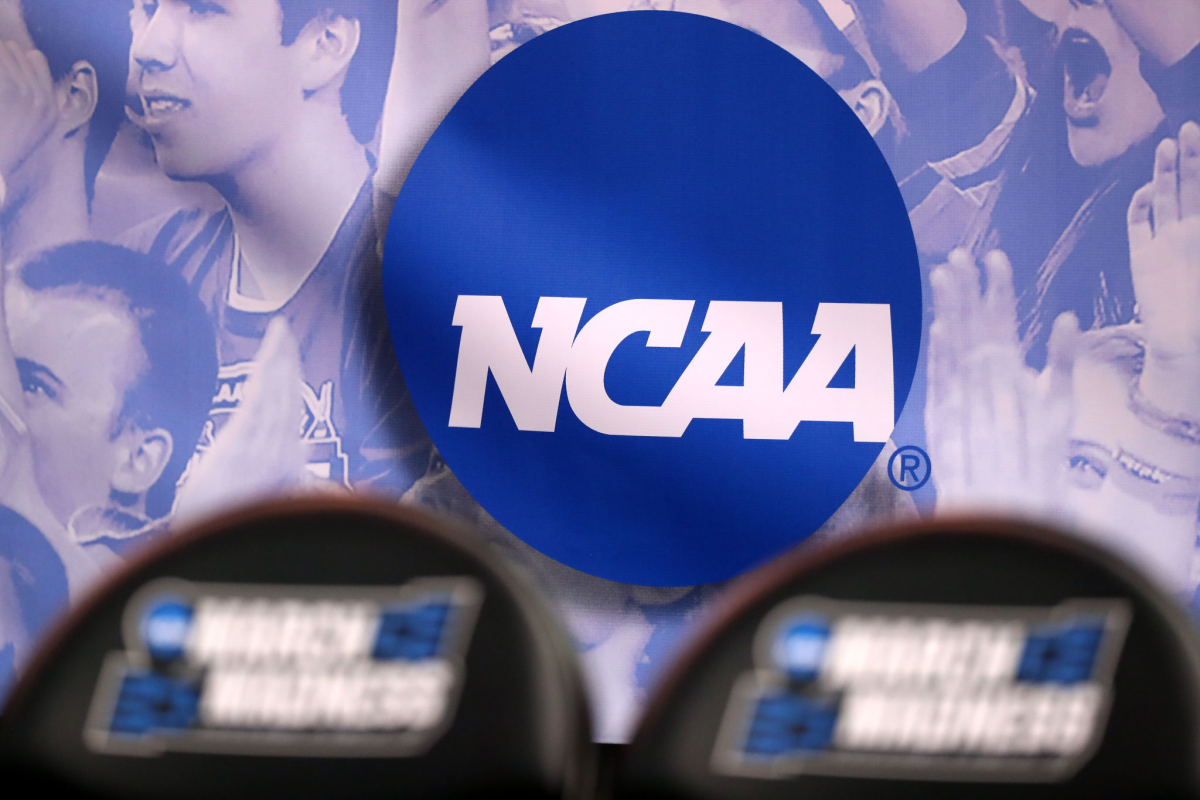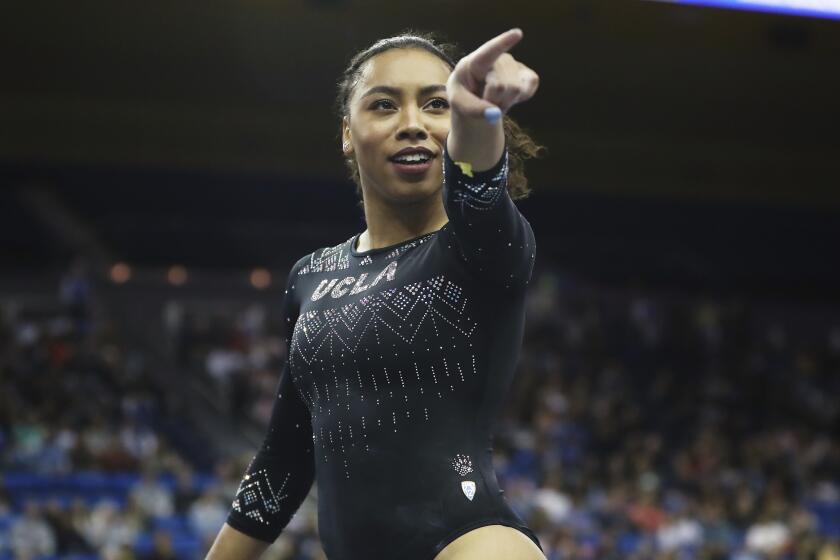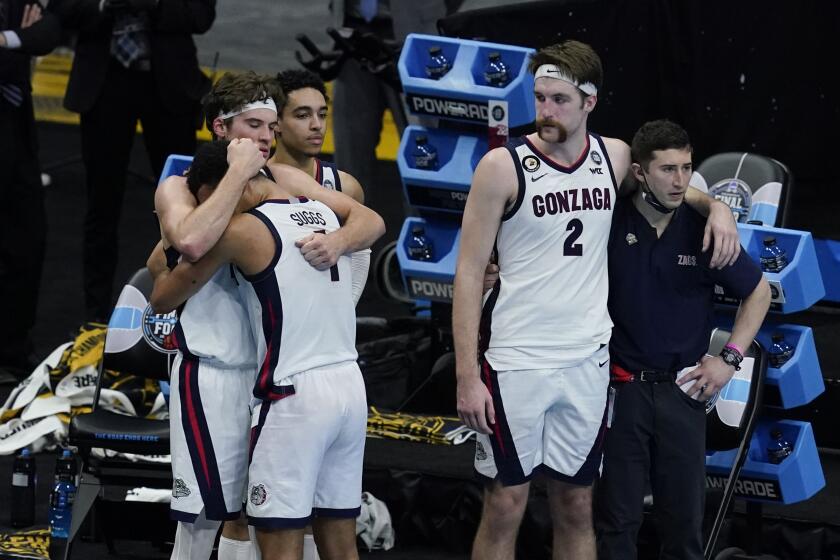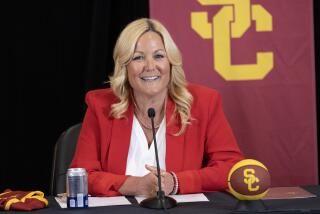Commentary: NCAA punts on NIL, leaving schools to set rules and athletes to celebrate freedom

Staring down the barrel of a July 1 effective date for name, image and likeness laws in states across the country, the NCAA finally ceded control Monday, handing schools the responsibility of policing third-party payments to college athletes who can now capitalize on their fame.
The NCAA Division I Council — reeling from a Supreme Court ruling last week that further stripped away confidence in the ability of the NCAA rule book to withstand antitrust scrutiny — voted to recommend its board of directors “adopt an interim policy that would suspend amateurism rules related to name, image and likeness,” according to an NCAA statement.
The board is scheduled to meet Wednesday and expected to approve this measure, which would have been unthinkable before the Court’s unanimous ruling in NCAA v. Alston upheld the appeals court’s injunction that stated NCAA schools can no longer collude to limit compensation and benefits for athletes related to their education.
The NCAA had spent much of the past two years, since California passed Senate Bill 206 in September 2019, trying to thread a needle of allowing athletes to benefit from their name, image and likeness, but fully on its terms, with freshly-conjured limits in place to preserve the perceived integrity of the recruiting process.
Monday, even while stating it would be up to the schools to craft their own policies in states without active legislation, the NCAA provided guidance that its “policy leaves in place the commitment to avoid pay-for-play and improper inducements tied to choosing to attend a particular school.”
UCLA plans to leverage ties to Hollywood and talent agencies to help athletes capitalize on NCAA name, image and likeness rules that go into effect July 1.
It was left unclear how the NCAA expects schools, which thought the NCAA was going to be approving new rules on NIL with school-friendly, already-agreed-upon restrictions, to monitor the movements of hundreds of athletes within the untested NIL marketplace.
No doubt, the athletes will be ready for Thursday. NIL week began Monday with Wisconsin quarterback Graham Mertz tweeting out the trademark of his new personal brand with the slogan “I’ve got 5 on it” (Mertz wears No. 5). When the Wisconsin quarterback position — known mostly for handing the ball off 40 times per game — finds itself marketable, it is obvious that change is upon us.
As of Thursday, California athletes would be able to cash in, too, but will be at the mercy of their school’s policy, if the school has even had time to complete one in the week since the NCAA retreated from this one category of amateurism enforcement.
State Sen. Nancy Skinner (D-Berkeley) said last week she hopes California’s state law governing NIL use will be able to go into effect Sept. 1, but the bill faces a few more hurdles this summer in Sacramento.
With state legislatures and individual schools in charge — at least until a theoretical federal bill passes down the line in Congress — the start of the NIL era in college sports will be fascinating to watch.
The Supreme Court deals the NCAA a major loss on antitrust grounds
The University of Florida put forth a policy last week that said its boosters could not be involved in NIL payments to athletes. But what is the definition of a booster, and how does the school’s athletic department intend to enforce that rule? If Florida State and Miami don’t include such a rule in their policies, how long does Florida want to recruit from a place of disadvantage?
Where will USC and UCLA land in their policies in the coming months? Will they mirror the language of the state law, which does not outlaw booster involvement in payments?
We’re going to learn a lot about individual athletic departments and how they really feel about athlete empowerment.
We certainly learned plenty about the NCAA in the last week — none of it too surprising, of course. It will concede ground on NIL only because it has to, and because NIL allowances do not touch the parts of the pie that actually keep the school coffers filled — like that almighty TV dollar.
The cartel is cracking slowly, right before our eyes in real time, and should get no credit for the reform of the system we will witness later this week.
More to Read
Go beyond the scoreboard
Get the latest on L.A.'s teams in the daily Sports Report newsletter.
You may occasionally receive promotional content from the Los Angeles Times.













